Molly Twomey
The Drop Off
Asking for help is a thing of bravery. A poet describes her journey towards that help.
We’re pleased to offer Molly Twomey’s poem, and invite you to connect with Poetry Unbound throughout this season.
Pre-order the forthcoming book Poetry Unbound: 50 Poems to Open Your World and join us in our new conversational space on Substack.
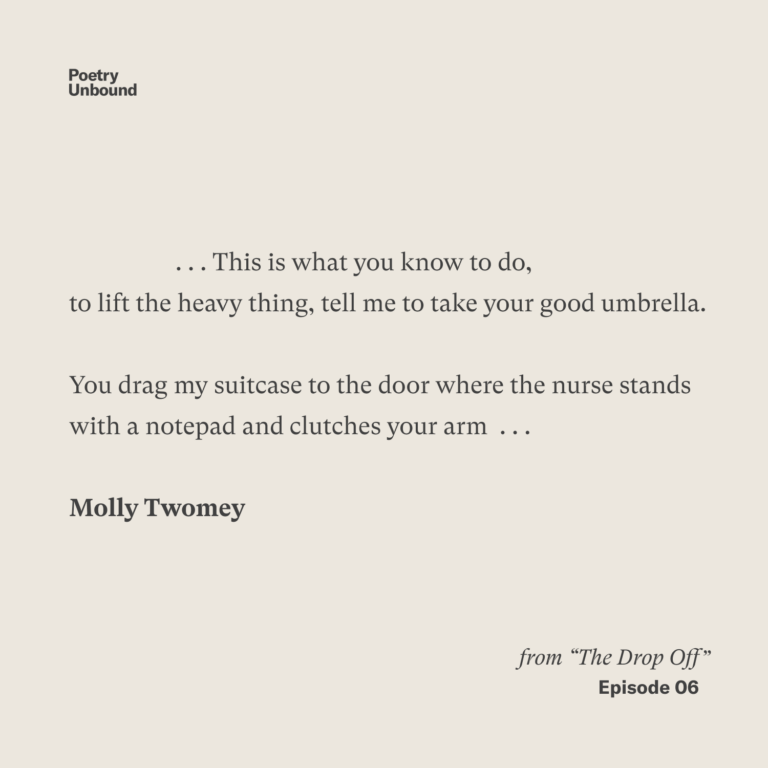
Guest
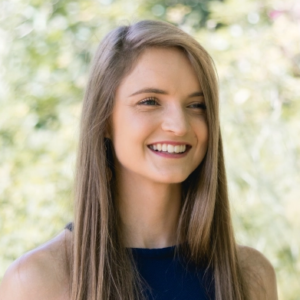
Molly Twomey is a poet and editor from Lismore, County Waterford in Ireland. Twomey graduated in 2019 with a Masters in Creative Writing from University College Cork. Her work has been featured in Poetry Review, Poetry Ireland Review, Banshee, The Irish Times, Mslexia, and The Stinging Fly, among other publications. Twomey is the host of the monthly poetry discussion “Just to Say,” sponsored by Jacar Press. Her first collection of poetry, Raised Among Vultures, was published in 2022 by The Gallery Press. Image by Michael O’Hanrahan.
Transcript
Pádraig Ó Tuama: Friends, thanks very much for listening to Poetry Unbound. Whether you’re new or you’ve listened to them all — your attention makes everything worthwhile. And I’ve got some news: I’ve written a book, Poetry Unbound: 50 Poems to Open Your World. There’s 50 poems, each with a fresh essay written by me. I’d love if you’d pre-order it, or pre-order a few, and join up to our free interactive newsletter. Links to everything at poetryunbound.org.
[music: “Praise the Rain” by Gautam Srikishan]
My name is Pádraig Ó Tuama, and years ago, in my 20s, it became clear to me that I needed therapy. And so, through a long process, I found somewhere to go, and I was so nervous. And I was so nervous I went into this wrong building and said, “I’m here to see” — and I mentioned the name of the therapist. And the receptionist looked at me, and she said, “Oh, he works next door.” And then she said, “Would you like me to take you?” And I was so desperate, I couldn’t figure out any directions. And then as we were about to leave, she said, “Well, I’ll get you a glass of water first.”
I was so moved, afterwards, that in the midst of all my nervousness that she, who had much more important things to do, found a way to show help. And when we got to the place, she said, “Here it is. Good luck.”
I’ve never seen her again, but I’ve always remembered her and praised her help.
[music: “Praise the Rain” by Gautam Srikishan]
“The Drop Off” by Molly Twomey
“Everything’s a blur. You don’t play Talking Heads,
Bob Dylan, talk about work or your iffy stomach.
“You read the road as if it’s encrypted
with what a father should say on a drive like this.
“Should I apologize for your missed appointments,
unread emails? There is always someone
“who needs you more. Mostly I’m sorry
that I’m not as happy as you raised me to be.
“I want to ask the GPS the quickest route to end this silence.
When we reach The Centre you pull up and go straight
“for the boot. This is what you know to do,
to lift the heavy thing, tell me to take your good umbrella.
“You drag my suitcase to the door where the nurse stands
with a notepad and clutches your arm.
“I’ll come back soon, you say,
but she smiles and says, It’s better if you don’t.”
[music: “Catching Water” by Gautam Srikishan]
This poem comes from a book called Raised Among Vultures, by Molly Twomey. And I was overwhelmed by this poem the first time I read it. It’s such a small poem, 16 lines long, somebody being taken to “The Centre” by a father, in the car. You can feel the silence. And you can sense, perhaps, that there is awkwardness and complication. I always feel like the speaker in this poem — somebody who’s being taken to a center to receive help, medical help; is full of a certain kind of self-recrimination: “Mostly I’m sorry / that I’m not as happy as you raised me to be.” There’s sadness, and then there’s sadness about sadness, and perhaps guilt about sadness about sadness.
But one of the things about this poem that I think is so powerful is that actually, it’s a praise song to asking for help and getting it — getting it from your dad, getting it from the nurse, getting it from yourself, getting it from the resolve to say, “I need help.”
Molly Twomey, as she introduces the whole book, Raised Among Vultures, talks about how it was in 2015, I think, that she needed to go to inpatient care for an eating disorder. And this poem describes her father taking her to a center that’s specializing in providing support. And there is so much help all around her. Even in the car, and her dad driving the car, he seems to have dropped everything to have driven her. And the nurse is there waiting. All the help is there, waiting. So this poem is a praise song to asking for and getting help, and knowing that help might be nearer than you think it is.
[music: “Creatures of Myth” by Gautam Srikishan]
I am so drawn to all of the characters in this poem. You know, there’s the speaker, there’s Molly Twomey, present in the poem. And then there’s the dad, and there’s the nurse. And I think each of them are in a certain sense an archetype. With the speaker, with Molly Twomey, you hear somebody who has decided, “I want help. I need help. I’m going to get help.”
And then with the dad, you hear somebody who is saying, “I’ll help. I’ll drive you.” And even though she is feeling like, “Oh, I’ve taken you away from work, there’s all your unread emails and you’re not even listening to Talking Heads or Bob Dylan along the way,” I get the impression that he’d have said, “I’d have driven you across the length of the country every day, if it will help.” And he seems to really want to help and perhaps do more than he’s capable of doing. You know,
“You drag my suitcase to the door where the nurse stands
with a notepad and clutches your arm.
I’ll come back soon, you say,
but she smiles and says, It’s better if you don’t.”
And that verb, “drag,” you get the sense of somebody carrying a great burden. And what the poem knows is that the father, too, is carrying a great burden — perhaps feeling a failure, that he hasn’t been able to help and that here he is, handing somebody who he loves with all of his life over to someone else, as if this somehow is a recrimination for him. And this is a burden that he needs to give up, because it’s not about him. And the nurse is saying to him, “It’s not about you, and you blaming yourself, or dragging everything along, won’t help, either.”
Who is this nurse? She knows about care, she knows about help, and she in a certain sense is an intervention, not only in the person who’s asking for help, but also in the family system. And she’s saying, “this individual is the one who’s looking for help and is going to find a way to help themself,” and is able to say, with a certain kind of boundary and clarity — you know, she’s clutched the arm of the dad, this nurse, and she smiles and says, “It’s better if you don’t.” The professionalism, the insight, the brilliance, the clarity, and the truth-telling of this nurse makes me admire her so much.
So each of these three archetypes — the one looking for help, the one desperately wanting to help, and then the one able to do the intervention that sometimes seems complicated or even cold, these three archetypes are present in the poem. And I think there’s a way within which I can be all three, at different times. This poem invites me into thinking, “When am I in need of asking for help? When is my help getting in the way? And when is my help really helping?”
[music: “Orchard Lime” by Blue Dot Sessions]
When they pull up to “The Center,” it says that he goes “straight / for the boot.” That’s what in Ireland we call the trunk of the car. And then Molly Twomey says, “This is what you know to do, / to lift the heavy thing, tell me to take your good umbrella.”
In poetry, you can talk about this thing called the “objective correlative.” T.S. Eliot called it that. And it’s a complicated term for talking about a poem that isn’t going to speak about metaphor or simile, but actually will have an object in the poem, and the object will bear the emotional weight of the poem.
And there’s a bunch of objects in the poem: the car, the dragged case, the nurse’s notepad. But then there’s this umbrella: “…tell me to take your good umbrella.” An umbrella’s something to shelter under, and it feels like to me that this umbrella is an image of the father’s love. He’s wanting to say, “Take this. I can’t go with you, I can’t shelter you, but I want to give you something that bears the emotional experience of being sheltered.” “[T]ell me to take your good umbrella” — not to borrow the good umbrella, just take it. And this, I think, is the way that we speak to each other through gesture, as people.
When I was younger, somebody beat me up. This person had kicked me far too much. And years later, when we were both adults, this person gave me a pair of shoes. And it was such a gesture, an object that held the emotional weight of that memory and that was, in a certain sense, an inadequate attempt at apology, but also a gesture, a language, toward apology. And so poems know this in the same way that people know this — that sometimes we choose an object because that object holds emotional weight, and we try to communicate something through that object. And here, in this poem, I’m always drawn to the umbrella.
[music: “Family Tree” by Gautam Srikishan]
There is some conversation in this poem. The father has just said, “I’ll come back soon.” The nurse, at the end, says, “It’s better if you don’t.” You hear internal conversations: ‘Should I apologize? I’m sorry.’ But primarily, there’s silence being described the whole way throughout the poem. And what is that silence? You know, there’s no music — even Talking Heads or Bob Dylan can’t be the interruption. There’s the weight of expectation about what she should say, perhaps. Maybe there’s the desire to have something that will bring you to a resolved silence rather than a tense silence. And this is one of the tasks of love, is to find a way to be with each other in tense silence. And even in the middle of that, to continue to be orienting each other towards love, which is what this poem is about: people helping themselves, people seeking help, getting help, and people finding a way to help other people get help.
And here, I think, we’re invited into thinking, ‘Where, today, might I want to ask for help? Or maybe I’m too near to give it. Or maybe I’m the one at the right distance to give it. How can help be praised and celebrated and given and received, in the circumstances of my life today?’
[music: “Family Tree” by Gautam Srikishan]
“The Drop Off” by Molly Twomey
“Everything’s a blur. You don’t play Talking Heads,
Bob Dylan, talk about work or your iffy stomach.
“You read the road as if it’s encrypted
with what a father should say on a drive like this.
“Should I apologize for your missed appointments,
unread emails? There is always someone
“who needs you more. Mostly I’m sorry
that I’m not as happy as you raised me to be.
“I want to ask the GPS the quickest route to end this silence.
When we reach The Centre you pull up and go straight
“for the boot. This is what you know to do,
to lift the heavy thing, tell me to take your good umbrella.
“You drag my suitcase to the door where the nurse stands
with a notepad and clutches your arm.
“I’ll come back soon, you say,
but she smiles and says, It’s better if you don’t.”
[music: “Praise the Rain” by Gautam Srikishan]
Chris Heagle: “The Drop Off” comes from Molly Twomey’s book Raised Among Vultures. Thank you to The Gallery Press, who gave us permission to use Molly’s poem. Read it on our website at onbeing.org.
[music: “Praise the Rain” by Gautam Srikishan]
Poetry Unbound is: Gautam Srikishan, Eddie Gonzalez, Lilian Vo, Lucas Johnson, Amy Chatelaine, Kayla Edwards, and me, Chris Heagle.
Our music is composed and provided by Gautam Srikishan and Blue Dot Sessions.
This podcast is produced by On Being Studios, which is located on Dakota land. Open your world to poetry with us by subscribing to our Substack newsletter at poetryunbound.org. You may also enjoy our other podcast On Being with Krista Tippett, or our newsletter, The Pause. Visit us at onbeing.org to find out more.
Books & Music
Recommended Reading
The On Being Project is an affiliate partner of Bookshop.org and Amazon.com. Any earnings we receive through these affiliate partnerships go into directly supporting The On Being Project.






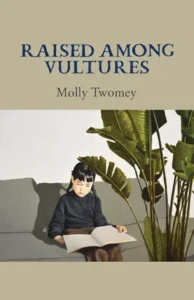

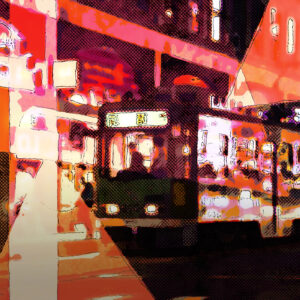
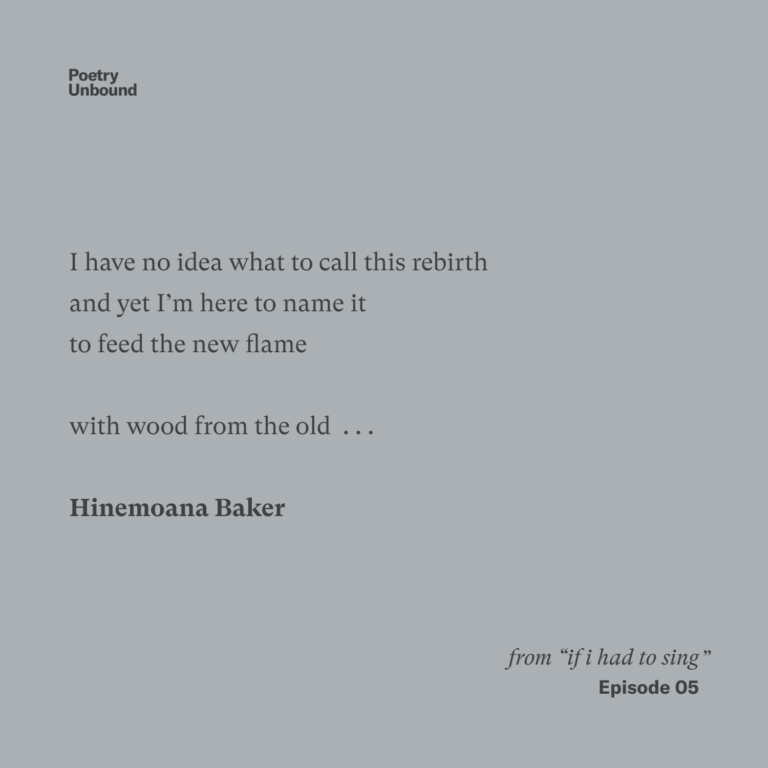
Reflections